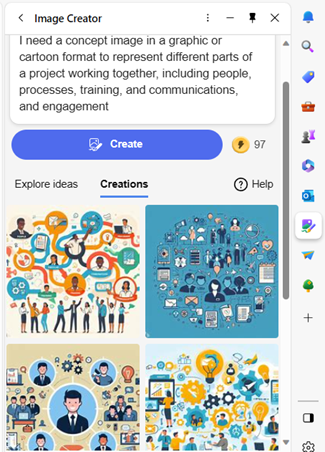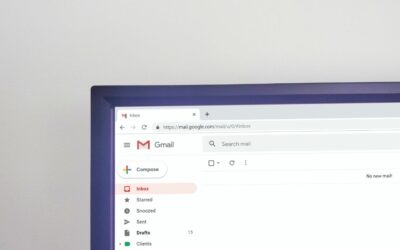There is no escaping the relentless march of AI. The rapid advancement of AI has permeated every corner of the tech landscape.
Software giants are swiftly integrating it into an array of business tools, with notable platforms such as Microsoft 365, Salesforce, and others leading the charge and creating numerous generative AI use cases for businesses.
Many people are still concerned about where AI will go. But there is no denying that it makes certain work more efficient and can benefit businesses in many ways. Generative AI can include ai content generation, ai document generation, ai image creation and so much more. With various generative ai applications on the market, both paid and open source, employees can generate custom images on demand or write a company device policy draft in seconds.
Staying ahead of the curve often means embracing cutting-edge technologies. Even if you’re a little wary about what the future holds.
Generative Artificial Intelligence (GenAI) is unique from the AI of a few years back. It can create, innovate, and optimize. These functions have become a game-changer for businesses of all sizes. Leveraging Generative AI, small businesses can unlock a world of possibilities. This includes everything from enhancing customer experiences to streamlining operations.
Have you felt bombarded with AI tool options? Unsure where to begin with leveraging it for your business? Let’s explore some smart and practical generative AI use cases for small business.

1. Personalized Customer Experiences
48% of customers expect specialized treatment for being loyal to a company.
Some of the ways AI can help you improve customer experience include:
- Tailored product recommendations
- Customized marketing messages
- Custom coupons
- Proactive engagement
These things help small businesses enhance customer satisfaction, fostering brand loyalty.
2. Chatbots for Customer Support
AI-powered chatbots on websites and social media platforms are becoming commonplace. This is because they enable small businesses to provide instant customer support. Which is exactly what people expect these days.
These chatbots can handle frequently asked questions. They can also assist with product inquiries and customer transactions.
They help small companies provide round-the-clock help for customers. But without having to pay for extra staff hours.
3. Presentations & Graphics Creation
Generating a great sales presentation can be time-consuming. Numerous generative AI applications ad tools can automate this process. Microsoft Copilot is one of these. It can take meeting notes and prompts and create a presentation. Including images!
Have you ever had trouble finding a promotional image? Tell Bing’s new AI tool what you need. You’ll get several options, tailored to your description.
AI-driven platforms can produce relevant and engaging graphics. This frees up valuable time and saves money for business owners.
Example from Bing powered by DALL-E3 in Edge (right).

4. Data Analysis and Insights
Generative AI can process vast datasets to extract meaningful insights. Small businesses can use AI algorithms to analyze important data.
Such as:
- Market trends
- Customer behavior
- Operational data
These insights can inform strategic decision-making. Which helps businesses refine their offerings and marketing strategies.
5. Dynamic Pricing Strategies
AI-driven pricing algorithms can help companies make better pricing decisions. Pricing your products and services can be tricky. You don’t want to go too low or too high.
AI helps businesses quickly analyze:
- Market trends
- Competitor pricing
- Customer behavior
These data insights help companies optimize pricing strategies. Small businesses can also dynamically adjust prices based on demand. This maximizes profits while remaining competitive in the market.
6. Supply Chain Optimization
AI can optimize supply chain operations. It can predict demand, identify inefficiencies, and suggest inventory levels. It takes away the human error component while freeing up teams from tedious administrative work.
Small businesses can reduce costs and improve efficiency. AI automates a lot of the supply process. This helps ensure products are readily available when customers need them.
7. Product Design and Prototyping
AI in product design process allows businesses to explore many design variations rapidly. AI algorithms can generate prototypes and simulations. They do this based on specified parameters. This enables small businesses to visualize products before investing in physical prototypes.
8. Human Resources and Recruitment
Generative AI can streamline the recruitment process. The hiring process includes a lot of work reviewing resumes. Many candidates don’t make the interview stage.
AI can help by analyzing resumes and screening candidates for you. It can even help with conducting initial interviews. Small businesses can find the best talent to drive their growth faster.
9. Predictive Maintenance
Downtime on a production line is costly. Proactive maintenance is vital. It’s another area where generative AI can help.
The technology can predict maintenance needs based on data analysis. It helps businesses avoid costly downtimes. It proactively addresses maintenance requirements. As well as helps to ensure smooth operations.




